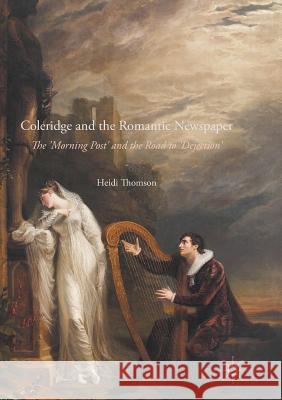Coleridge and the Romantic Newspaper: The 'Morning Post' and the Road to 'Dejection' » książka
topmenu
Coleridge and the Romantic Newspaper: The 'Morning Post' and the Road to 'Dejection'
ISBN-13: 9783319811680 / Angielski / Miękka / 2018 / 274 str.
Kategorie:
Kategorie BISAC:
Wydawca:
Palgrave MacMillan
Język:
Angielski
ISBN-13:
9783319811680
Rok wydania:
2018
Wydanie:
Softcover Repri
Ilość stron:
274
Waga:
0.34 kg
Wymiary:
21.01 x 14.81 x 1.52
Oprawa:
Miękka
Wolumenów:
01
Dodatkowe informacje:
Wydanie ilustrowane











